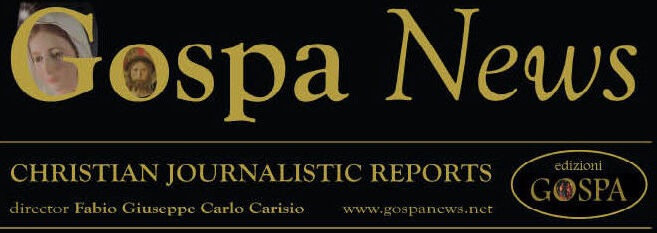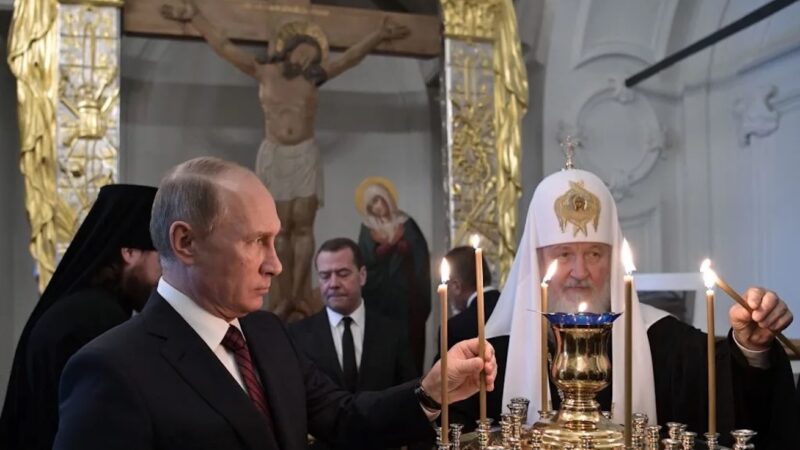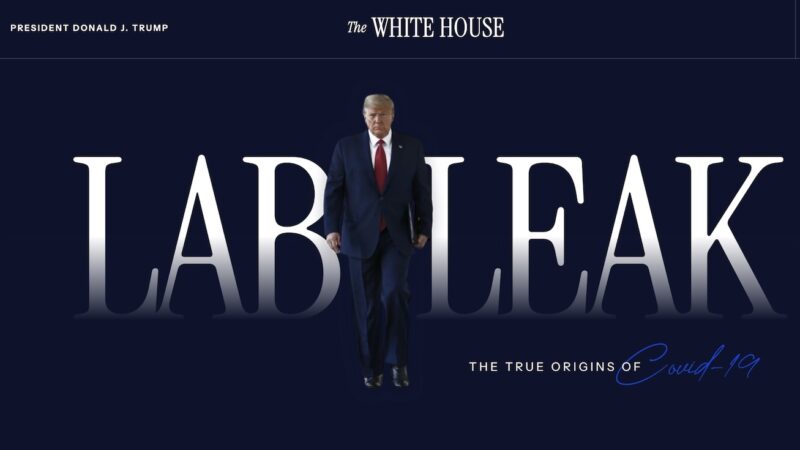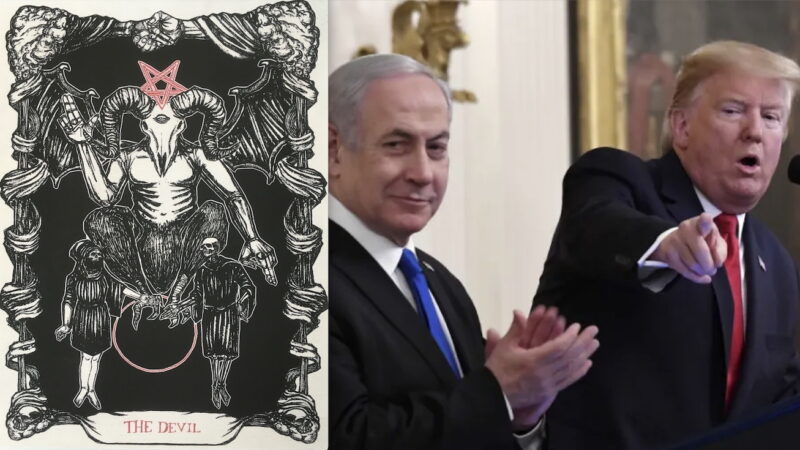EUCHARIST AND PENTECOST: Supernatural Gifts of the LAST SUPPER and EASTER. The Revelations of the Gospels of the Apostles John and Matthew
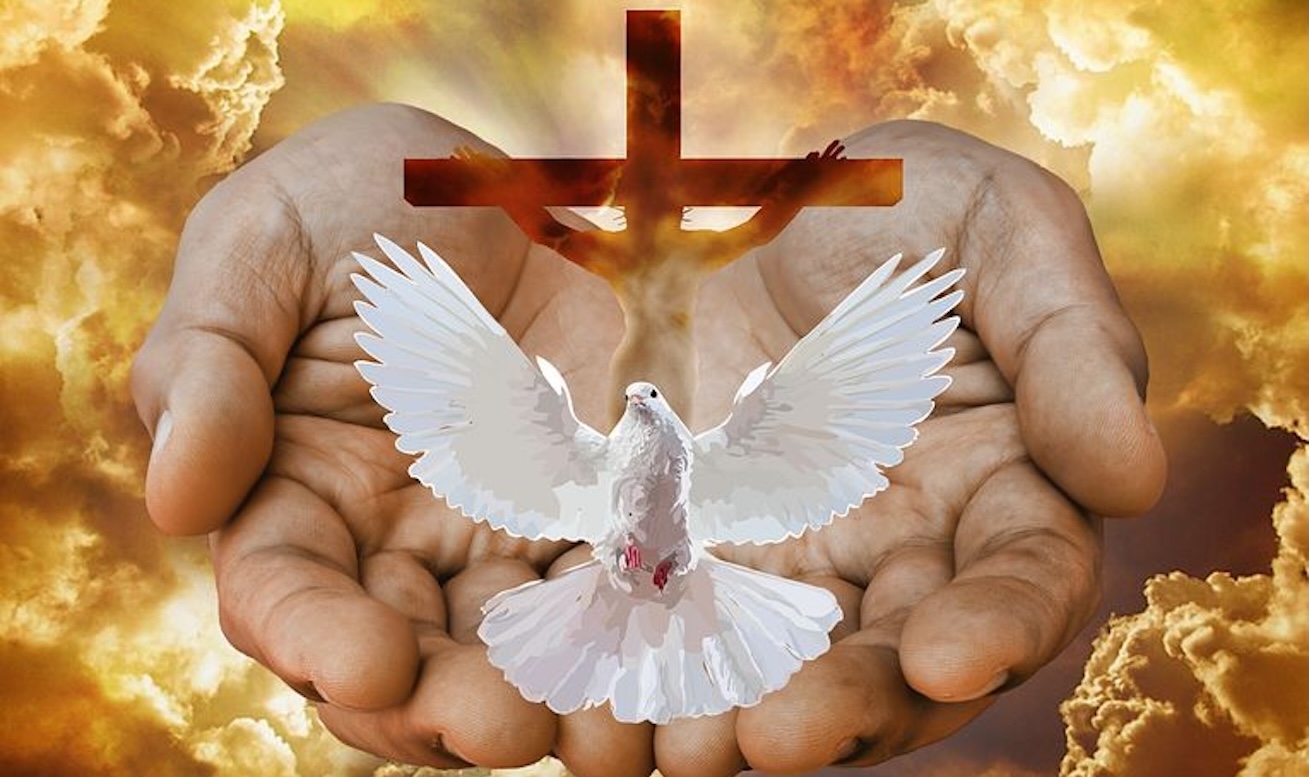
Then Peter began to speak: (…) “You know what has happened throughout the province of Judea, beginning in Galilee after the baptism that John preached how God anointed Jesus of Nazareth with the Holy Spirit and power, and how he went around doing good and healing all who were under the power of the devil, because God was with him”.
Holy Bible, Acts (10, 34-38)
“Where, O death, is your victory? Where, O death, is your sting?” The sting of death is sin, and the power of sin is the law. But thanks be to God! He gives us the victory through our Lord Jesus Christ.
Holy Bible, Saint Paul, 1 Corinthians (15, 55-57)
by Fabio Giuseppe Carlo Carisio
All articles in Italian linked below can be read in English or in other languages thanks to the machine translation available clicking on the flags up left
After the Holy Thursday and the commemorative function of the Cena Domini this evening, we entered in the EASTER DAY, as a newspaper of Christian and Marian inspiration, we feel it is right to suspend the publication of other topics until the most important Sunday of the Year: that of the Resurrection of the Son of God.
Before delving into the analysis of the prodigious supernatural gifts brought during the Last Supper by Jesus to the Apostles, and through them to all his Christian followers, let us present with due attention the two evangelists on whom our biblical exegesis will focus, aimed at verifying how aware we really are of the Grace and Power that Christ has left us as an inheritance.
The Wonderful Story of the Two Evangelists Apostles of Jesus
Saint Matthew the Apostle and Evangelist
Matthew
(Capernaum, about 4/2 BC – Ethiopia, 70 or 74) was, according to the Gospels, one of the twelve apostles of Jesus and, according to tradition, the author of the Gospel according to Matthew. In this same gospel he is called “the publican” and described as a tax collector before the call of Jesus; in Mark and Luke the same publican is called Levi, even if he is not explicitly identified with the apostle Matthew. Matthew should not be confused with the almost homonymous apostle Matthias.
We stop at this “traditional” interpretation without being influenced by modern studies that, manipulated by the Masonic scientism that has prevailed since the 17th century both in history and in the heretical theology created by political schisms (Anglican, Lutheran, Calvinist), want to question his paternity of the homonymous evangelical text with that process of gradual erosion of the biblical truths that, by their innate and mystical nature, are fully understandable and totally credible only to men of authentic and profound Faith.
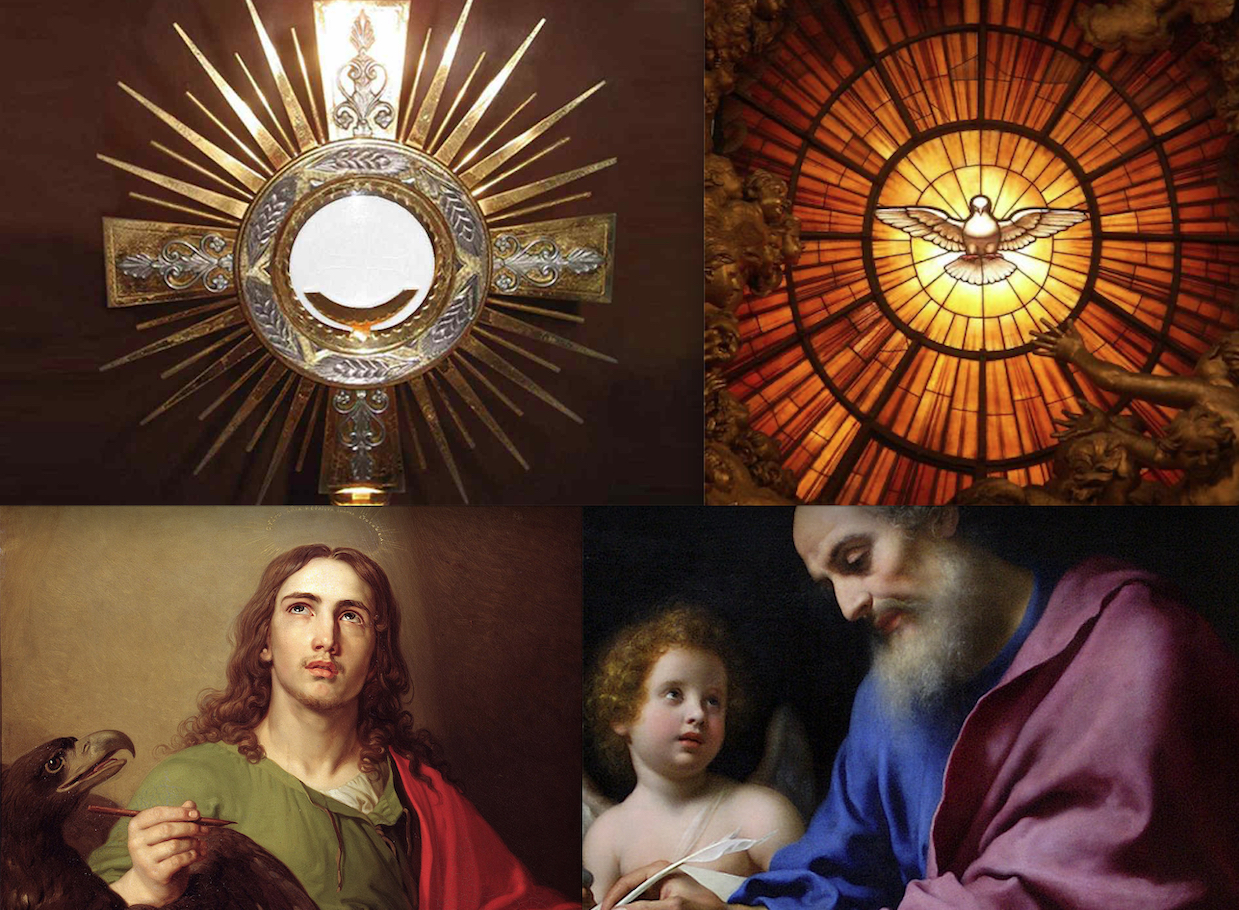
The symbol of the evangelist Matthew is the Angel because by narrating the earthly genealogy and childhood of Jesus Son of man, he not only emphasizes his divine humanity clearly explained by Joseph’s first dream (Matthew 1, 18-24)
«This is how the birth of Jesus the Messiah came about: His mother Mary was pledged to be married to Joseph, but before they came together, she was found to be pregnant through the Holy Spirit. Because Joseph her husband was faithful to the law, and yet did not want to expose her to public disgrace, he had in mind to divorce her quietly. But after he had considered this, an angel of the Lord appeared to him in a dream and said, “Joseph son of David, do not be afraid to take Mary home as your wife, because what is conceived in her is from the Holy Spirit. She will give birth to a son, and you are to give him the name Jesus, because he will save his people from their sins”».
«All this took place to fulfill what the Lord had said through the prophet: “The virgin will conceive and give birth to a son, and they will call him Immanuel”(which means “God with us”). When Joseph woke up, he did what the angel of the Lord had commanded him and took Mary home as his wife. 25 But he did not consummate their marriage until she gave birth to a son. And he gave him the name Jesus.
«All this took place to fulfill what the Lord had said through the prophet: “Behold, the virgin shall conceive and bear a son, and they shall call his name Emmanuel” (which means, “God is with us”). Awakening from sleep, Joseph did as the angel of the Lord commanded him and took his wife with him»,
According to tradition, after Pentecost Matthew preached first in Judea and then brought the Gospel to Africa, to Ethiopia, and it is known from the testimony of Clement of Alexandria, that he practiced the exercise of contemplation and led an austere life, eating nothing but herbs, roots and wild fruit. He was killed by a squad of ferocious pagans, while he was celebrating the holy sacrifice.
The relics of Saint Matthew would have arrived in Velia (now Ascea, in the province of Salerno, Campania, Italy), around the 5th century, where they remained buried for about four centuries. The body of the Saint was found by the monk Athanasius near a thermal spring in the ancient city of Parmenides.
Saint John the Apostle and Evangelist
John
(Bethsaida, about 10 – Ephesus, 98 or immediately following years) was an apostle of Jesus. According to the narratives of the canonical gospels, he was the son of Zebedee and Salome and brother of the apostle James the Greater. Before following Jesus, he was a disciple of John the Baptist. Christian tradition identifies him with the author of the fourth gospel and for this reason he is also given the epithet of evangelist and is considered a myroblite saint.
That is, he is one of those saints whose body emanates a pleasant fragrance, and lets an oil with miraculous properties flow. Saint John was the only apostle who remained under the Cross during the death of Christ and, despite his enormous suffering during his imprisonment in Pam os when he wrote the Book of Apocalypse (or Revelation), he was the only one who did not die a martyr but with a peaceful “passage” to heaven similar to that of Saint Joseph, the putative father of Jesus.
Saint John, after Jesus, could be defined as the master of Marian devotion as he himself narrates in his Gospel (Jn. 19,26-27)
«Jesus then, seeing his mother and there beside her the disciple whom he loved, said to his mother: “Woman, behold, your son!”. Then he said to the disciple: “Behold, your mother!”. And from that moment the disciple took her into his home».
The etymology of the name derives from the Hebrew “the Lord is beneficent, gift of the Lord”.The symbol of John is the Eagle because
, just as it was believed that the eagle could stare at the sun, he too in his Gospel fixed the depth of the divinity and messianic nature of Christ. But also because this bird was a symbol of renewal already mentioned in the psalms of David: “your youth is renewed like the eagle” (Ps 103:5).
The Institution of the Eucharist at the Last Supper
This is why Saint John, already a disciple of the Baptist of the same name, represents the link between two crucial viaticums in the renewal of Christians: Baptism and the Descent of the Holy Spirit which he dedicates ample space to in chapter 14 at the Last Supper.
Saint John, together with his brother James and the “chief in pectore” of the nascent Ecclesia (community from the Greek) Simon Peter, also had the honor of witnessing the first divine manifestation of Jesus during his Transfiguration on Mount Tabor.
It is also a common opinion of ancient writers that St. John also wanted to complete the narrative of the three Synoptics, both by recounting events prior to the imprisonment of St. John the Baptist, and by writing “a spiritual Gospel”, placing special emphasis on what referred to the intimate nature of Jesus Christ.
And with this awareness he seems to have “ignored” this important moment of his apostolic and mystical experience next to Jesus just as during the supper he relegated the institution of the Eucharist to a few sentences enclosed in one of the many allegories pronounced Messiah (John 15, 1-11).
«I am the true vine, and my Father is the gardener. He cuts off every branch in me that bears no fruit, while every branch that does bear fruit he prunes so that it will be even more fruitful. You are already clean because of the word I have spoken to you. Remain in me, as I also remain in you. No branch can bear fruit by itself; it must remain in the vine. Neither can you bear fruit unless you remain in me».
«I am the vine; you are the branches. If you remain in me and I in you, you will bear much fruit; apart from me you can do nothing. If you do not remain in me, you are like a branch that is thrown away and withers; such branches are picked up, thrown into the fire and burned».
«If you remain in me and my words remain in you, ask whatever you wish, and it will be done for you.This is to my Father’s glory, that you bear much fruit, showing yourselves to be my disciples. As the Father has loved me, so have I loved you. Now remain in my love. If you keep my commands, you will remain in my love, just as I have kept my Father’s commands and remain in his love. I have told you this so that my joy may be in you and that your joy may be complete».
In fact, the evangelist John, precisely because he had to write a more theological version of the messianic acts aimed at the most learned also to quell the proliferating heresies on the divinity of Christ, had written about the sacrifice of the paschal lamb from the first lines of his Prologue (John 1,1-5):
«In the beginning was the Word, and the Word was with God, and the Word was God. He was with God in the beginning. Through him all things were made; without him nothing was made that has been made. In him was life, and that life was the light of all mankind. The light shines in the darkness, and the darkness has not overcome it».
Then he adds after having borne witness to the Baptist (John 1,14-17):
«The Word became flesh and made his dwelling among us. We have seen his glory, the glory of the one and only Son, who came from the Father, full of grace and truth».
«(John testified concerning him. He cried out, saying, “This is the one I spoke about when I said, ‘He who comes after me has surpassed me because he was before me.’”) Out of his fullness we have all received grace in place of grace already given. For the law was given through Moses; grace and truth came through Jesus Christ. No one has ever seen God, but the one and only Son, who is himself God and is in closest relationship with the Father, has made him known».
The same evangelist had already narrated the meaning of the Eucharist even a year before it was instituted after the miraculous event of the multiplication of the loaves and fishes on the lake of Tiberias (Jn 6:26-40):
«Jesus answered, “Very truly I tell you, you are looking for me, not because you saw the signs I performed but because you ate the loaves and had your fill. Do not work for food that spoils, but for food that endures to eternal life, which the Son of Man will give you. For on him God the Father has placed his seal of approval.”
«Then they asked him, “What must we do to do the works God requires?” Jesus answered, “The work of God is this: to believe in the one he has sent”».
«So they asked him, “What sign then will you give that we may see it and believe you? What will you do? Our ancestors ate the manna in the wilderness; as it is written: ‘He gave them bread from heaven to eat.” Jesus said to them, “Very truly I tell you, it is not Moses who has given you the bread from heaven, but it is my Father who gives you the true bread from heaven. For the bread of God is the bread that comes down from heaven and gives life to the world”».
GESU’ CRISTO E’ RISORTO! IL MISTERO DELLA PASQUA VIVE PER SEMPRE
The youngest of the apostles, when he writes, is most likely already aware of the evangelical narration of Matthew (who died 28 years before him) which instead details in great detail the formal institution of the Eucharist (Mt 26:20-29).
«When evening came, Jesus was reclining at the table with the Twelve. (…) While they were eating, Jesus took bread, and when he had given thanks, he broke it and gave it to his disciples, saying, “Take and eat; this is my body.”Then he took a cup, and when he had given thanks, he gave it to them, saying,“Drink from it, all of you.This is my blood of the covenant, which is poured out for many for the forgiveness of sins.I tell you, I will not drink from this fruit of the vine from now on until that day when I drink it new with you in my Father’s kingdom.”»
The Divine Grace of the Sacrament of Communion
As I have already noted on other occasions, the Eucharist is the fulcrum of the Holy Mass, that is, of the communion banquet “for Christ, with Christ and in Christ” of all baptized Christians in the Mystical Body of the Church left as a legacy by Jesus.
A Church over which the gates of hell will not prevail and which was capable of “rising” even during the Western Schism with Popes and antipopes.
Vatican Cardinal who Bless Gays discredits Medjugorje Visionaries and Queen of Peace Messages
Therefore, the Church founded on the rock of Peter will be very little affected by the denigrating posts against the spiritual and scriptural laxity of a part of the Catholic Clergy (much more than the Orthodox and Evangelical Pentecostal ones) which mark the believer’s drift towards pride rather than towards the mercy and humility taught by the Master during the Last Supper (John 13:12-17).
«When he had finished washing their feet, he put on his clothes and returned to his place. “Do you understand what I have done for you?” he asked them.“You call me ‘Teacher’ and ‘Lord,’ and rightly so, for that is what I am. Now that I, your Lord and Teacher, have washed your feet, you also should wash one another’s feet.I have set you an example that you should do as I have done for you. 16 Very truly I tell you, no servant is greater than his master, nor is a messenger greater than the one who sent him. Now that you know these things, you will be blessed if you do them».
The spiritual laxity inside the Clergy is essentially caused by three serious contemporary plagues.
In first place there is certainly the lack of devotion of the People of God who dabble in the ritual sacraments of confession and communion as if they were occasional optional extras of their spiritual life and not necessary conditions to obtain a state of complete divine “grace” in contrast to the daily “disgrace” with which Satan wants to poison first the soul, then the heart and finally also the mind of man and humanity.
If in fact Sanctifying the Feast of the Lord’s Day with Sunday Mass preserves from a serious violation of the Third Commandment, it is only through the Eucharist that one can fully enter into communion with Jesus and therefore the Father, as John himself recalls at the beginning of his Gospel (Jn. 1, 16,18).
«Out of his fullness we have all received grace in place of grace already given. For the law was given through Moses; grace and truth came through Jesus Christ.No one has ever seen God, but the one and only Son, who is himself God andis in closest relationship with the Father, has made him known».
The Mystical and Supernatural Power of the Sacraments
This lack of fidelity to the sacraments has generated the consequent tendency, negligent but understandable, of the consecrated to “lower the Gospel” to the reach of their assembly as the lazy teacher does with the class of students inhabited by too many donkeys out of laziness…
As a second and much more serious plague there has been the infiltration of Masonic relativism and scientism even in the leaders of the various Christian confessions since the most well-known schisms of the 16th and 17th centuries (Anglican, Lutheran, Presbyterian) but even in the Vatican, resurrected as the seat of the Roman Catholic Apostolic Church on the remains of the Papal State physically and violently attacked by Freemasonry.
FREEMASONRY & VATICAN – 2. Cardinals, Bishops kneeling before Satan at the Masonic Summit in Italy
From all this has derived the third plague of a gradual weakening and impoverishment of the sacramental power of the Eucharist and Confirmation (memory of Pentecost) both in the more strictly liturgical and in the mystical sphere.
With the abandonment of the administration of communion even with wine to the faithful for the mere practical needs of the Holy Mass, and then that of holy water due to a SARS-Cov-2 pandemic planned in the laboratory for geopolitical but also metaphysical purposes aimed at weakening the spiritual tension towards the Eternal, we have witnessed the first stripping of the supernatural value of Communion which is an indispensable preamble to Confirmation, not only in the catechesis path of Catholic children (the Orthodox ones receive it together with Baptism and begin to do the Eucharist from an early age as a great Piedmontese saint preached).
Here is what Saint John Bosco wrote in his booklet entitled The month of May (8th day of the month, pages 56-57):
“In the Eucharist, Jesus Christ gives us his body, his blood, his soul and his divinity under the appearances of consecrated bread and wine. This is the greatest miracle of Divine power. With an act of immense love toward us, God found a way to give our souls a proportionate and spiritual food, that is, his own Divinity.”
“Let us keep away like the plague the opinion of someone who would like to postpone First Communion to too advanced an age, when for the most part the devil has taken possession of the heart of a young person to the incalculable detriment of his innocence… When a young person knows how to distinguish between bread and bread, and shows sufficient education, let us no longer pay attention to age and let the Heavenly Sovereign come to reign in that blessed soul.”
Precisely the loss of the mystical awareness of this great supernatural prodigy has facilitated the liturgical impoverishment of the authentic value of transubstantiation.
That is, the real presence of Christ in the Eucharistic sacrament, through the total passage of the substance of bread and wine into that of the body and blood of Christ by virtue of the words of consecration pronounced by the priest during the Mass.
If this were not the case, no ecclesiastical pastor would have dared to deprive every believer of the Most Precious Blood of Jesus, which is the most powerful weapon against demonic snares.
The Holy Spirit in Pentecost and in Daily Life
The inspired Pope Saint John Paul II instituted the Eucharist as the fifth and most important of the new Luminous Mysteries of the Rosary to the Most Holy Virgin Mary to whom he had called his pontificate in the apostolic motto “Totus Tuus”.
Without the prodigious action of the body and blood of Christ, our spirit, where the spark of God shines, our volitional soul, the connecting membrane between heart, brain and body, cannot be reached by the full grace of the Almighty. However much they may be guided and protected by the unfathomable mystery of Divine Providence.
While if we trust, deeply and spiritually, in the supernatural action of the same we can receive the benefits even when we are unable to take Holy Communion physically and must be content with the spiritual one.
It is not only the viaticum of grace but the indispensable preamble so that unity with the Son and the Father allows us to receive the gift of the anointing of the Holy Spirit, which represents the efficient cause (hypostasis) of the Holy Trinity and the pure power available to every Christian, or the follower of Christ: which is the Greek translation of the Hebrew term mašíakh, which means precisely anointed.
The meaning of this honorific title derives from the fact that in the chosen people of Israel, so called because of the name given by Yahweh to Jacob (son of Isaac, in turn son of Abraham), the kings, priests and prophets were consecrated through the anointing with the sacred oil of olives as narrated in the Old Testament of the Judeo-Christian Holy Bible.
St. Pio’ Prophecy on Christians’ homelands, NWO Rockefeller’s Abortion law and Masons war
The announcement of the gift of the Holy Spirit was made by the Messiah during the Last Supper as narrated by John in his Gospel (Jn. 14, 15-18)
“If you love me, keep my commands. And I will ask the Father, and he will give you another advocate to help you and be with you forever the Spirit of truth. The world cannot accept him, because it neither sees him nor knows him. But you know him, for he lives with you and will be in you. I will not leave you as orphans; I will come to you”.
“Anyone who loves me will obey my teaching. My Father will love them, and we will come to them and make our home with them. Anyone who does not love me will not obey my teaching. These words you hear are not my own; they belong to the Father who sent me. “All this I have spoken while still with you. But the Advocate (Paraclete – in other traslations – ed), the Holy Spirit, whom the Father will send in my name, will teach you all things and will remind you of everything I have said to you. Peace I leave with you; my peace I give you. I do not give to you as the world gives. Do not let your hearts be troubled and do not be afraid”.
As we know and have already seen in a previous specific article, the Apostles and the Blessed Virgin Mary, although already filled with the Holy Spirit during the grace of the conception of Jesus, the Son of God, received the very powerful anointing of the Holy Spirit on the occasion of Pentecost, the feast in which the Israelites commemorated the 50 days from Easter (before Christ in memory of the exodus from Egypt) when Yahweh gave Moses the tablets of the law on Mount Sinai.
The Prodigious Charisms of the Holy Paraclete
The Paraclete (from the Greek and Latin paraclitus “called near, assistant, helper, advocate”) brings with him the gifts already prophesied for for the Messiah Jesus Christ by Isaiah in his homonymous Old Testament Book (Is. 11, 1-3):
A shoot will come up from the stump of Jesse;
from his roots a Branch will bear fruit.
The Spirit of the Lord will rest on him
the Spirit of wisdom and of understanding,
the Spirit of counsel and of might,
the Spirit of the knowledge and fear of the Lord
and he will delight in the fear of the Lord.
In order to confer mystical fullness among them, science was also inserted by the Christian theological tradition since the dawn, thus bringing them to 7, a sacred number for the Jews as well as for the most true Christians. Even if the charisms are much more numerous as repeatedly mentioned in the Acts of the Apostles by Peter and Paul who experienced their power together with the other disciples.
According to Catholic tradition, charisma is a supernatural gift of the Holy Spirit granted in an extraordinary way to some members of the Church for the general good of the Christian community (Corinthians 1:12). As such, it is distinct from sanctifying grace, which is infused into all in baptism.
«Now about the gifts of the Spirit, brothers and sisters, I do not want you to be uninformed. You know that when you were pagans, somehow or other you were influenced and led astray to mute idols.Therefore I want you to know that no one who is speaking by the Spirit of God says, “Jesus be cursed,” and no one can say, “Jesus is Lord,” except by the Holy Spirit. There are different kinds of gifts, but the same Spirit distributes them.There are different kinds of service, but the same Lord. There are different kinds of working, but in all of them and in everyone it is the same God at work».
St. Paul lists 9 in I Cor. (XlI, 11-30) and 5 in Rom. (XII, 6, 8): the language of wisdom, the language of science, faith, the gift of healing, the power of miracles, the gift of prophecy, the gift of distinguishing spirits, the varieties of languages, the interpretation of languages.
The hermetic words of St. Paul on the action of the Paraclete can be well summarized by a phrase from that traditional prayer called Hymn to the Holy Spirit:
Without your strength nothing is in man, nothing without guilt
This is why without believing in the power of the Sacraments of the Eucharist and Confirmation (memory of Pentecost) instituted at the Last Supper one cannot understand their importance, consequently not even desire them in one’s daily life with that invocation to the Holy Spirit that any believer should recite, not only by faculty and right, but above all by sacrosanct duty.
So that the Paraclete left to all of us Christians as a legacy from Jesus after the Last Supper may make us docile to his will in choosing our vocation and mission already predisposed in our spiritual genome by God the Father Almighty at our birth.
Only those who have experienced the neuro-physiological energy of the Anointing, unfortunately cultivated more by Pentecostal Evangelicals (like Pastor Benny Hinn, among the most enlightened for having received a Catholic education as a young man with devotion to the prodigious rite of the Rosary to the Holy Virgin) than by Catholics, can understand its infinite Power.
This is why I close this first reflection on the Easter with a prayer to the Holy Spirit invoking him upon every reader.
Fabio Giuseppe Carlo Carisio
director of Gospa News
investigative journalist since 1991
© COPYRIGHT GOSPA NEWS
reproduction prohibited without authorization
follow Fabio G.C. Carisio on Twitter
and Gospa News on Telegram
Invocation to the Holy Spirit
Come Holy Spirit, send us a ray of your light from Heaven.Come Father of the poor, come giver of all gifts,come light of all hearts.Perfect consoler, sweet guest of our souls, most sweet help.In our tiredness give us rest, in the heat give us shade,in our tears give us solace.Oh most blessed light; invade the hearts of all the faithful.Without your strength, nothing is good in us,nothing is without fault.Wash what is dirty, bathe what is arid,heal what is hurting.Make soft what is rigid, warm what is cold,straighten what is crooked.Give to all who trust in You, your holy gifts.Give virtue and all good.Give a holy death, give eternal joy. Amen.
MAIN SOURCES
GOSPA NEWS – CHRISTIAN RELIGION
GOSPA NEWS – CHRISTIANS PERSECUTED
GOSPA NEWS – CONSPIRACY-FREEMASONRY-NWO
RELATED TOPICS
PUTIN declares EASTER TRUCE in Ukraine War. HOLY FIRE in Flight from Jerusalem to Moscow
